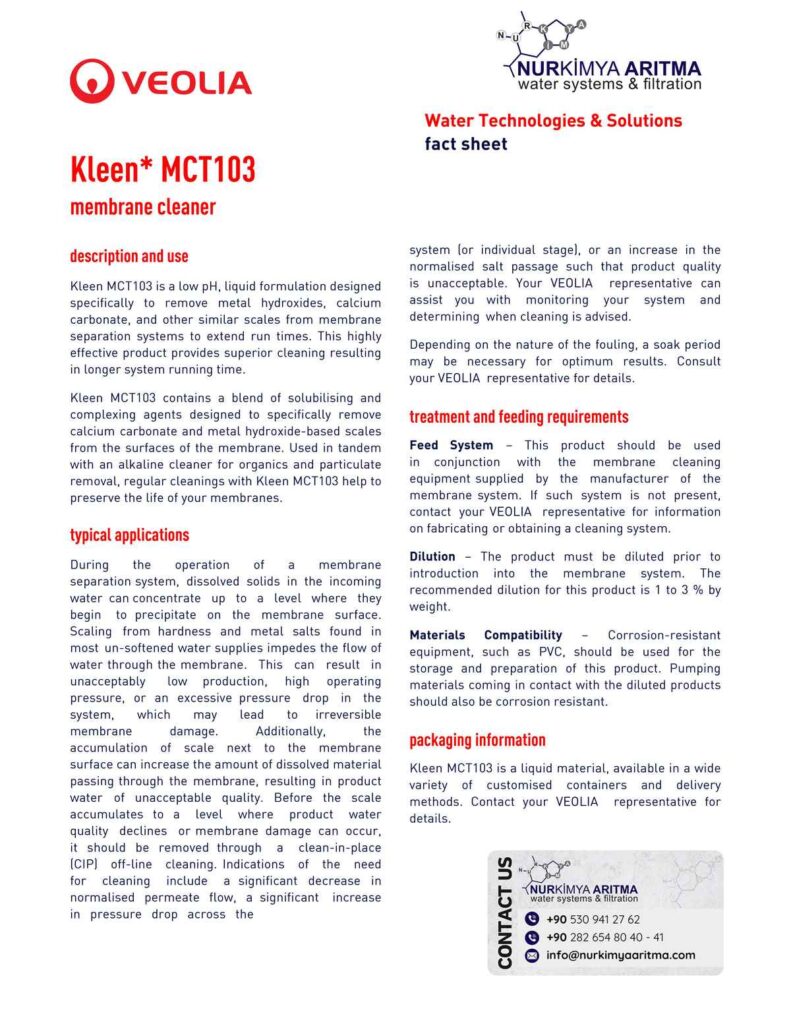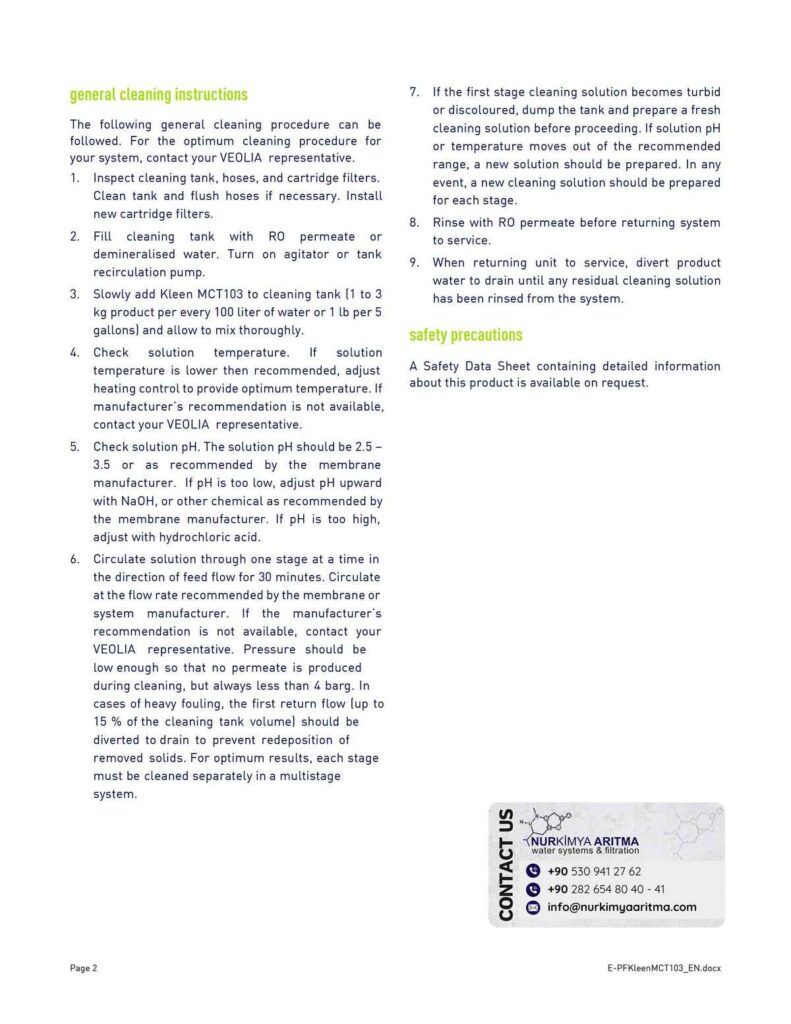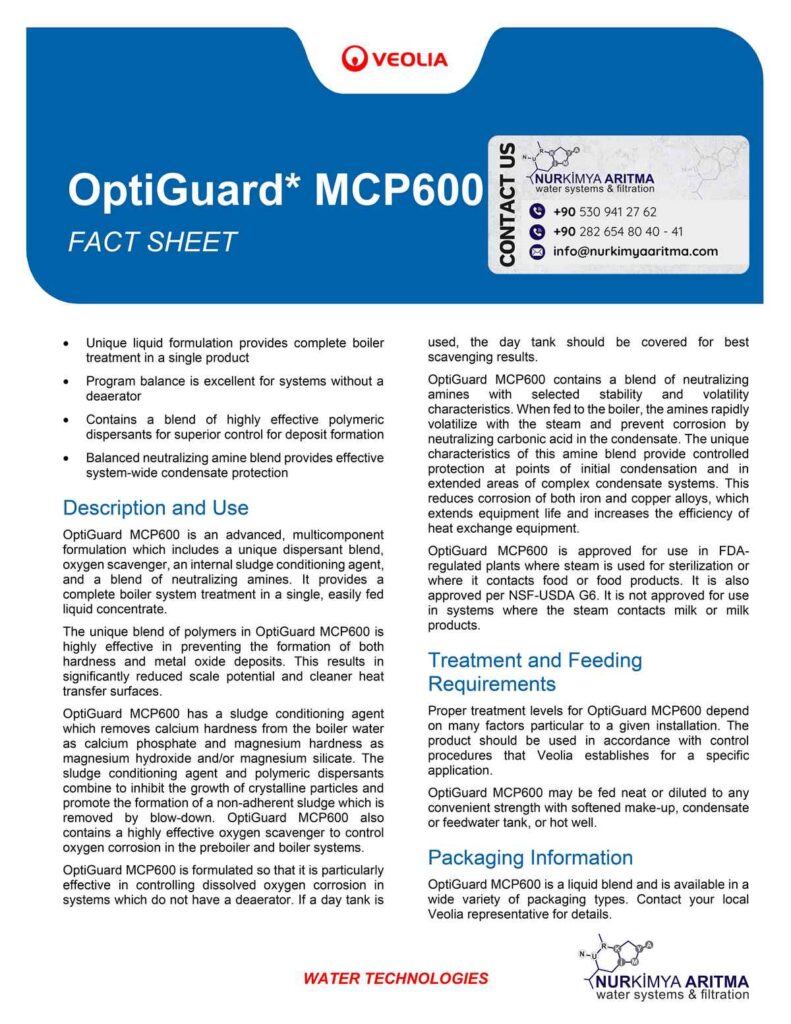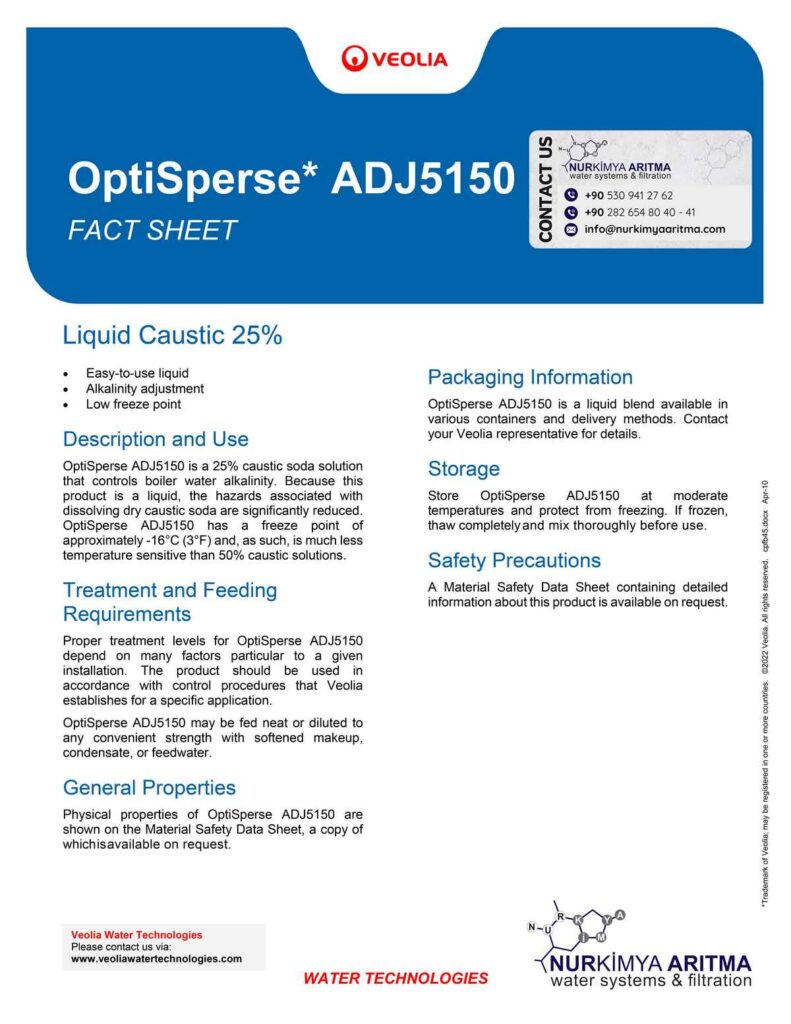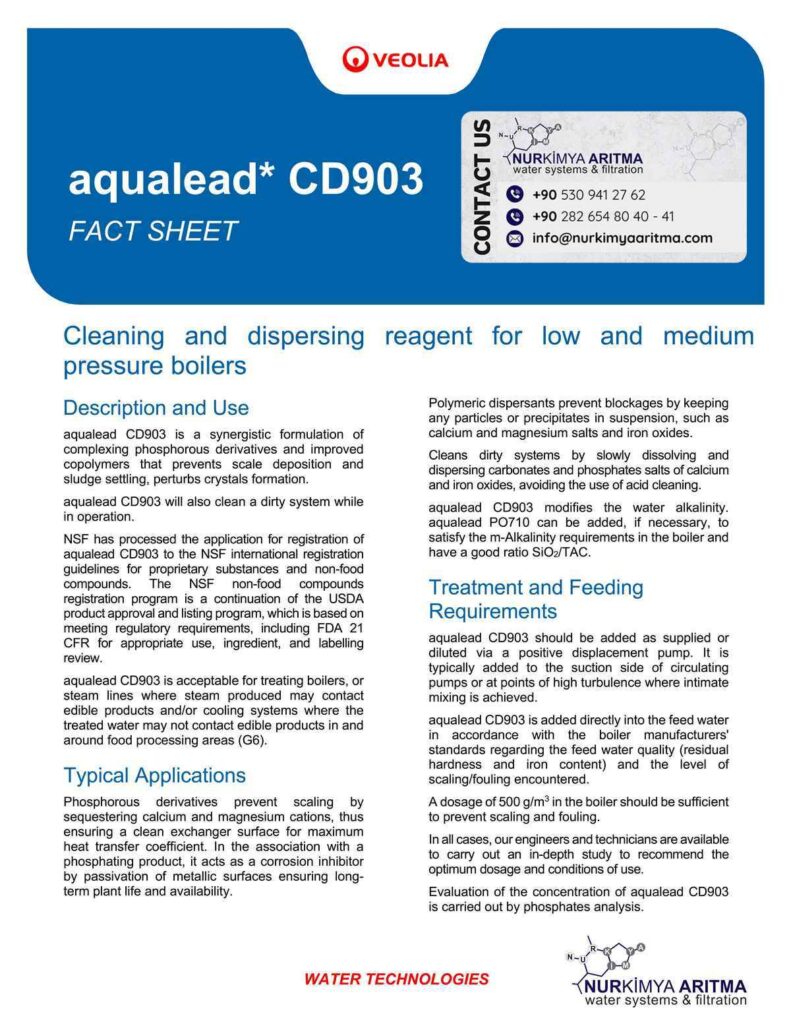Water Technologies & Solutions fact sheet
Kleen MCT103 is a low pH, liquid formulation designed specifically to remove metal hydroxides, calcium carbonate, and other similar scales from membrane separation systems to extend run times. This highly effective product provides superior cleaning resulting in longer system running time.
Kleen MCT103 contains a blend of solubilising and complexing agents designed to specifically remove calcium carbonate and metal hydroxide-based scales from the surfaces of the membrane. Used in tandem with an alkaline cleaner for organics and particulate removal, regular cleanings with Kleen MCT103 help to preserve the life of your membranes.
During the operation of a membrane separation system, dissolved solids in the incoming water can concentrate up to a level where they begin to precipitate on the membrane surface. Scaling from hardness and metal salts found in most un-softened water supplies impedes the flow of water through the membrane. This can result in unacceptably low production, high operating pressure, or an excessive pressure drop in the system, which may lead to irreversible membrane damage. Additionally, the accumulation of scale next to the membrane surface can increase the amount of dissolved material passing through the membrane, resulting in product water of unacceptable quality. Before the scale accumulates to a level where product water quality declines or membrane damage can occur, it should be removed through a clean-in-place (CIP) off-line cleaning. Indications of the need for cleaning include a significant decrease in normalised permeate flow, a significant increase in pressure drop across the system (or individual stage), or an increase in the normalised salt passage such that product quality is unacceptable. Your VEOLIA representative can assist you with monitoring your system and determining when cleaning is advised.
Depending on the nature of the fouling, a soak period may be necessary for optimum results. Consult your VEOLIA representative for details.
treatment and feeding requirements
Feed System – This product should be used in conjunction with the membrane cleaning equipment supplied by the manufacturer of the membrane system. If such system is not present, contact your VEOLIA representative for information on fabricating or obtaining a cleaning system.
Dilution – The product must be diluted prior to introduction into the membrane system. The recommended dilution for this product is 1 to 3 % by weight.
Materials Compatibility – Corrosion-resistant equipment, such as PVC, should be used for the storage and preparation of this product. Pumping materials coming in contact with the diluted products should also be corrosion resistant.
Kleen MCT103 is a liquid material, available in a wide variety of customised containers and delivery methods. Contact your VEOLIA representative for details.
The following general cleaning procedure can be followed. For the optimum cleaning procedure for your system, contact your VEOLIA representative.
- Inspect cleaning tank, hoses, and cartridge filters. Clean tank and flush hoses if necessary. Install new cartridge filters.
- Fill cleaning tank with RO permeate or demineralised water. Turn on agitator or tank recirculation pump.
- Slowly add Kleen MCT103 to cleaning tank (1 to 3 kg product per every 100 liter of water or 1 lb per 5 gallons) and allow to mix thoroughly.
- Check solution temperature. If solution temperature is lower then recommended, adjust heating control to provide optimum temperature. If manufacturer’s recommendation is not available, contact your VEOLIA representative.
- Check solution pH. The solution pH should be 2.5 – 3.5 or as recommended by the membrane manufacturer. If pH is too low, adjust pH upward with NaOH, or other chemical as recommended by the membrane manufacturer. If pH is too high, adjust with hydrochloric acid.
- Circulate solution through one stage at a time in the direction of feed flow for 30 minutes. Circulate at the flow rate recommended by the membrane or system manufacturer. If the manufacturer’s recommendation is not available, contact your VEOLIA representative. Pressure should be low enough so that no permeate is produced during cleaning, but always less than 4 barg. In cases of heavy fouling, the first return flow (up to 15 % of the cleaning tank volume) should be diverted to drain to prevent redeposition of removed solids. For optimum results, each stage must be cleaned separately in a multistage system.
- If the first stage cleaning solution becomes turbid or discoloured, dump the tank and prepare a fresh cleaning solution before proceeding. If solution pH or temperature moves out of the recommended range, a new solution should be prepared. In any event, a new cleaning solution should be prepared for each stage.
- Rinse with RO permeate before returning system to service.
- When returning unit to service, divert product water to drain until any residual cleaning solution has been rinsed from the system.
A Safety Data Sheet containing detailed information about this product is available on request.
